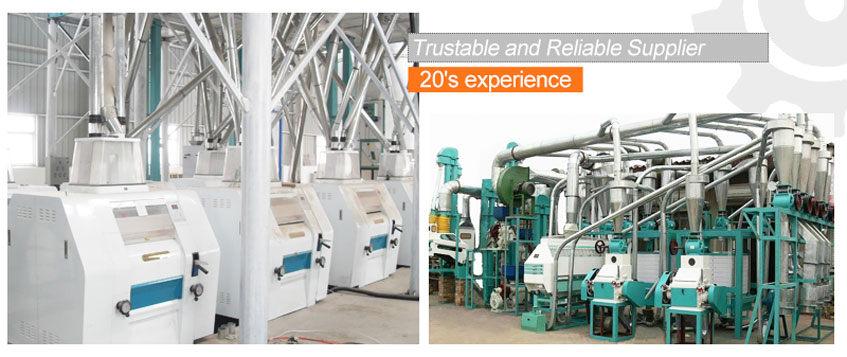Corn, as the world's most important food crop with the highest total production, is rich in nutrients and has a variety of uses. Corn milling, the process of transforming corn grains into various valuable products (maize flour, corn grits, corn starch and some by-products.) , plays a pivotal role in the food industry. This paper focuses on the two main methods of corn milling - dry milling and wet milling - and provides insights into the processing steps, processing machinery and technological advances in the maize milling industry.

Turnkey Solutions for Corn Milling Process Design
If you have plans to get into the corn processing industry to start a corn milling plant business, you can check out this article for some related information. Of course you can also get more information from our special page on corn milling knowledge: Tips For Streamlining Maize Processing Steps>>
Corn Uses
Corn oil - corn embryo contains 36 ~ 41% oil, for high-quality edible oil and can make margarine.
Corn starch - made of syrup colorless, transparent, high fructose content, can be made of high-grade candy, pastry, bread, jam and a variety of beverages.
Feed - harvested during the maturity of the stalk and cob, is a good silage for dairy cows.
Other - corn in the industry can make alcohol, beer, acetaldehyde, acetic acid, acetone, butanol and so on.
The main products of corn wet milling are maize starch and corn oil, and the by-products are excellent livestock feed. The main steps are cleaning, soaking, grinding, separating, refining, dehydrating and drying, etc., so that the cellulose, oil, protein and other non-starch materials in the corn kernel are separated, and get the white powdery starch. (You May Interested: Maize starch industry production process and equipment)
The germ is dried to make corn germ oil. The rest is ground again to separate the corn starch, fiber, and gluten. Corn starch is either dried and sold or made into other products such as corn sweeteners, corn syrup, glucose and fructose. The fiber and gluten are used to make feed.

Byproducts Of Corn By Wet Milling Process
Dry milling of corn is a widely used method that consists of several consecutive steps to extract different components from corn kernels. Generally includes removing impurities, adjusting moisture, peeling, breaking grits and de-embryo, lifting grits and lifting embryo, milling , to get corn grits, corn flour.
Corn dry milling process is a less versatile and less capital intensive process technology. In the corn milling process, the corn milling machines relies on a pair of opposite differential rotation to remove the skin, extract the endosperm, and grind the corn kernels into fine-grained corn flour. (Read More: small scale maize milling machines cost in Kenya)
The core corn processing equipment include: corn milling machine, vibrating screen, de-stoning machine, de-embryo machine, germ extraction machine, corn peeling machine, corn polishing machine, flat sieve, etc.

Corn Dry Milling Process Machine For Sale
Corn milling process techniques include dry and wet processing, both of which are widely used in the maize milling industry, but also have their own advantages and disadvantages. Corn milling business enterprises should be considered comprehensively, choose the processing technology suitable for your own.
Comparison of Dry- and Wet-Milling Process
| Corn Dry Milling | Corn Wet Milling | |
|---|---|---|
| Technology | Cleaning, conditioning, degermination, milling | Cleaning, Steeping, milling and separation |
| Finish Products | Corn flour, corn grits, corn meal, ethanol | Corn starch, corn gluten meal, corn germ oil, fiber, ethanol |
| Requirements for equipment | Lower | Higher |
| Investment Cost | Lower | Higher |